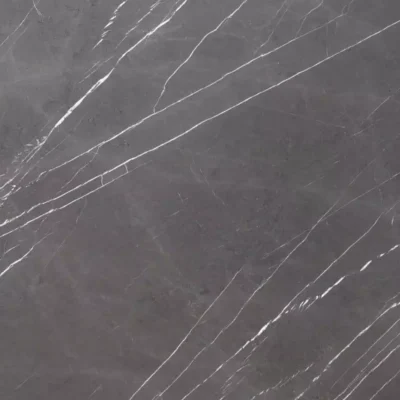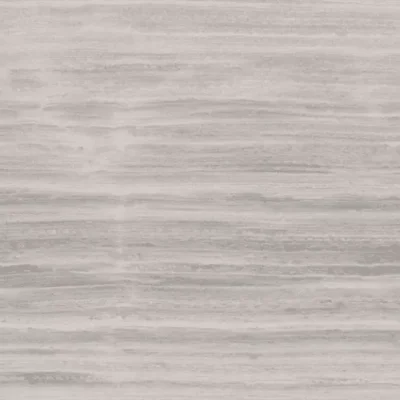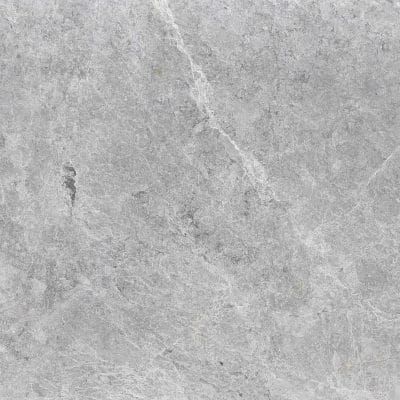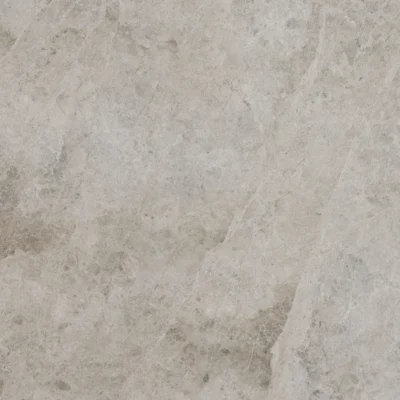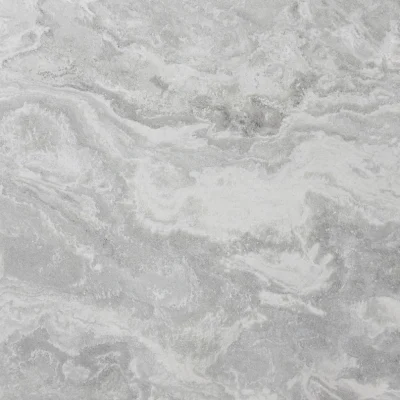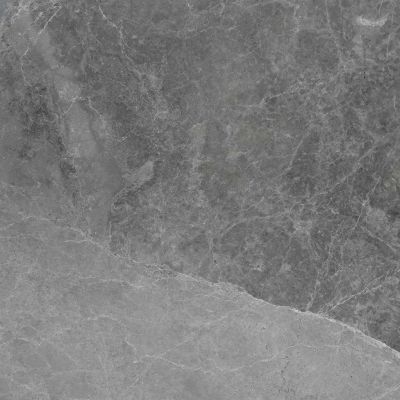Limestone Slabs
Product Categories
- Stone Slabs – Stone Slabs Stone slabs have become a progressively favored selection for home interiors in recent times due to their enduringness, versatility, and aesthetic charm. With a vast array of options available, stone slabs present an alternative that can cater to your specific necessities and inclinations, be it revamping your floors, walls, worktops, or fireplaces. When it comes to designing stunning and functional living spaces, stone slabs offer countless possibilities, ranging from a diverse spectrum of colors, patterns, and textures to several finishing and edging choices. Undoubtedly, stone slabs are the preeminent preference for your home’s interior, and this article will elaborate on why this is so, highlighting their distinctive attributes, innovative options, and maintenance recommendations. With stone slabs, you can achieve exceptional results that surpass all other possibilities, ensuring that your home interiors stand out with their elegance and refinement. Unique Properties of Stone Slabs Stone slabs have emerged as the quintessential choice for homeowners who prioritize quality, longevity, and aesthetic allure in their abodes. With their distinctive features, they stand apart from other materials like laminate or tile, as they provide a gamut of advantages that can transform the design and functionality of your home. Let’s delve into the…
- Travertine Slabs – TRAVERTINE SLABS The products you select can make all the difference in producing a beautiful, long-lasting final product when it comes to building and landscaping. Travertine is one such substance that has been utilized for millennia in building and design. Natural stone called travertine is gaining popularity in contemporary buildings and landscaping, especially in outdoor applications. They provide a number of advantages, such as toughness, aesthetic appeal, and organic variations in texture and hue. In Sydney, Aquatic Drive is a popular location for landscaping projects that incorporate travertine due to its close proximity to suppliers and ease of transportation. Whether you’re using travertine for pathways, patios, or pool surrounds, the products can withstand heavy foot traffic and harsh weather conditions. With the right installation techniques and maintenance, your travertine landscaping project on Aquatic Drive can last for years to come. The Pros and Cons of Travertine Slabs for Flooring: Is it a Durable and Practical Choice? A natural stone known as travertine has been employed in architecture for many years. Due to its sturdiness, aesthetic allure, and inherent variations in texture and colour, it is a preferred option for flooring. However, it’s crucial to balance the benefits and drawbacks before…
- Granite Slabs – Granite Slabs in Sydney Granite slabs have a well-earned reputation for toughness and easy maintenance, making them popular in kitchens. Granite Slabs are exceptionally long-lasting and very attractive, with a broad range of designs and colors to select. Granite is a highly sought-after countertop material that continues to increase in popularity. Granite slabs offer great flexibility in indoor and outdoor settings due to their durability, strength, heat, and chemical resistance. At Avant Stone, we believe in being the Granite Supplier in Sydney that sources only the best granite slabs available; our slabs are ‘first selection’ materials. Our philosophy is to be the Granite Supplier that finds colors that are suited to the tastes of the Australian Market. Genuine natural stone including marble, travertine, granite slabs, is the “natural choice” for countertop surfaces. They are quarried from the ground in their natural state and cut into slabs for your home. Unlike quartz / reconstituted Natural Stone Slabs, granite slabs are processed with minimal use of resin and chemicals. How Many Variations of Granite Slabs Are Available? Granite Slab is available in a broad range of hues and patterns. Granite is a hard igneous rock made up of a variety of minerals such as quartz, mica, feldspar, and others. Produced…
- Marble Slabs – Marble Slabs Avant Stone is Sydney’s premier supplier of Natural Stone Slabs. Our focus is finding quality materials, sourcing only the marble slabs that feature patterns and colors that are suited to the modern Australian architectural palette. Marble throughout history has been the choice material across different regions and cultures, famous examples of its use include St Peter’s Basilica and the Parthenon. In the modern context, the application of marble remains as popular as ever due to its eco-friendly credentials. Marble slabs Sydney do not require harmful resins and chemicals during their production. Marble is also a great insulator, keeping your home or commercial space cool during the hot Australian summer. What is Marble? Marble starts life as limestone which through geological processes is recrystallized under heat and pressure. Over millennia as ocean floors slowly spread, limestone seabeds get dragged into the Earth’s crust, turning into marble Sydney with heat and pressure. The movement of the Earth’s crust causes arabescato marble to twist and warp. This process of heating and warping is responsible for the marble’s trademark waves and patterns. Colour of Marble Slabs Marble slabs are available in various colors, of which white marble and grey are the most…
- Quartzite Slabs – Avant Stone Your Quartzite Slab Supplier Avant Stone prides itself on having the highest quality quartzite slabs in Sydney. Our aim is to promote Natural Stone Slabs in Sydney, as they combine the best feature of Marble and Granite. Come select the perfect surface at Sydney’s premier quartzite supplier, Avant Stone. Quartzite is an extremely hard metamorphic rock. It is one of the densest natural stones and has a stronger physical structure than even granite. Quartzite slabs along with their physical durability, share the patterns and premium look of marble, making them nature’s wonder material. Quartzite – what is it exactly? Quartzite slabs are compromised almost entirely of the mineral quartz, with an added combination of calcite and silica. Quartzite begins its geological life as sand grains that over time are compressed to form sandstone. The sandstone with a combination of heat and pressure over time fuses together forming a dense, durable rock. Quartzite tends to have a beautiful appearance and a glassy luster. How durable are Quartzite slabs? Quartzite is a hard and durable material. It measures at a 7 on the Mohs hardness scale. To put that into perspective, Quartzite is harder than glass and a knife blade. What colors…
- Dolomite Slabs – Dolomite Slabs Dolomite Slabs remain a popular option among designers right now. These stones make undoubtedly stunning countertops that will instantly infuse your space with a feeling of elegance and grandeur. Natural stone countertops are growing more popular subsequently due to trends and new aesthetic concepts. The most popular stones are marble and granite. However, they may not be the stone made for you. Maybe granite is above your budget, or marble doesn’t match the aesthetics you’re looking for. Dolomite Slabs provide an equivalent aesthetic with some extra durability benefits. Dolomite may be the appropriate material for you if you’re looking for a gorgeous countertop material that compliments your interior décor at a reasonable price. Why Choose Dolomite Slabs? Dolomite is a low-maintenance stone with the visual appeal of marble and the durability of granite. This stone is scratch, dent, and abrasion-resistant. It is also resistant to heat, pressure, and other forms of wear and strain. Dolomite, which comes in white and grey hues with beautiful natural veining, lends an air of elegance and refinement like marble to any kitchen. A fantastic alternative to marble for countertops in the industry, Dolomite is somewhat more durable than marble but much softer than granite, making…
- Limestone Slabs – Limestone Slabs Over the years, Limestone Slabs have become a more common form of stone application. Limestone has a striking similarity to marble, a well-loved stone. While Limestone slabs are not as conventional as marble or granite, it is an excellent material for different applications and is becoming increasingly popular. They’re far less expensive than marble and granite, and they have a natural beauty that you won’t find anywhere else. They do require a little more attention than other materials, such as sealing treatments and regular cleaning, but the extra effort will pay off in the form of pleasant and attractive appeal. Features Of Limestone Slabs Homeowners fancy the unfamiliarity of the natural evolution of Limestone. The stone is formed from marine life shells and fossils and sculpted by sand and living marine creatures. As a result, Limestone Slabs frequently have one-of-a-kind characteristics that distinguish this material, such as shell and fossil imprints. This organic beauty will make a stylish, one-of-a-kind alternative for your kitchen counters. Limestone Slabs are available in soft, natural colors like tan, beige, brown, and grey so that they can blend in with your current decor. They also have a subtle matte finish that goes with any kind and…
- Other Slabs – Sandstone Slabs Sandstone Slabs are the new stones gaining significant attention. Offering the kitchen a genuinely rich appearance, Sandstone Slabs emphasizes the design’s beauty. Sandstone Slabs are easy to work with because of their strength, frost and abrasion resistance, and water resistance. Sandstone Slab is frequently mistaken for soapstone, even though there is a significant difference. Having a Sandstone Benchtop in your kitchen ensures that you will have a beautiful, safe, and long-lasting countertop that will give your kitchen a stylish look and last a long time What are Sandstone Slabs? Sandstone Slabs are a natural material that is mined and carved from stone slabs. It has stunning earthy hues and a deep depth that is a perfect match for any modern kitchen. Sandstone Slabs successfully integrate all of the primary qualities of real stone while also having a strong visual appeal, making them a premium option as a decorative element in kitchen design. Natural stone surfaces have a deep texture that elevates the material to an exclusive status among mundane materials. Because it is ecologically safe and antimicrobial, sandstone is a wonderful alternative to granite. Sandstone Slabs need to be installed correctly and maintained regularly. How to care for…
- Natural Stone Tiles – Natural Stone tiles Natural stone tiles might be the answer you’re searching for if you’re planning a renovation or merely want to modernize your living space. These tiles are a useful option for any house because they provide a number of advantages in addition to being a classic and elegant flooring option. Natural stone tiles are a wise investment that can last for years due to their sturdiness, sustainability, and capacity to improve any design scheme. Applications of Natural Stone Tile Natural stone slabs can be a beautiful and practical flooring solution for various applications in your home. Here are some of the most common uses of natural stone tiles: Flooring From the living room to the restroom, natural stones are a great option for flooring in any area of your house. They can add a bit of refinement and beauty to any setting, and because of how long-lasting and sturdy they are, they can also be a great investment. Kitchen Backsplash Your kitchen can look amazing with a natural stone tile countertop by adding structure, color, and interest to the area. Since they are simple to clean and keep, ceramic wall tiles are also very practical in the kitchen.…
- Travertine Tiles – TRAVERTINE TILES Travertine tiles are a natural stone material that is commonly used for flooring, countertops, and walls. These Natural Stone tiles are made from a type of limestone that has been formed over time by the mineral-rich waters of hot springs. With a unique, textured surface and beautiful colors, travertine tiles are an excellent choice for adding character and style to any home. Travertine tiles are unique in many ways, with a range of characteristics that make them an excellent choice for home décor. For starters, they are made from natural stone, which makes them durable and long-lasting, able to withstand the wear and tear of daily use. They are also heat resistant, making them an excellent choice for kitchens and bathrooms. With their unique texture and natural beauty, travertine tiles made from natural stone are a great choice for anyone looking to add style and sophistication to their home. In this article, we will take a closer look at the benefits of using natural stone travertine tiles in your home. INNOVATIVE APPLICATIONS OF TRAVERTINE TILES Travertine tiles offer a wide range of applications, both inside and outside of your home. Here are some of the most popular ways…
- Cobbles
- Marble Tiles – Marble Tiles Sydney Marble tiles have long been cherished for their timeless elegance and versatility in interior design. The natural beauty and exquisite patterns found in marble tiles have captivated the hearts of designers, architects, and homeowners alike. In recent years, marble has experienced a resurgence in popularity, becoming a symbol of luxury and sophistication. Here, we will explore the creative applications of marble tiles, delve into the benefits of choosing only marble floor tiles, discuss various marble tile designs and patterns, compare marble floor tiles with other tile options, and conclude with some final thoughts on the enduring allure of marble. Creative Applications of Marble Tiles Marble Flooring Marble flooring stands as a testament to opulence and grandeur. Its smooth surface, coupled with its distinctive veining, adds a touch of luxury to any space. From majestic entryways to elegant living rooms, marble flooring exudes a sense of timeless beauty that transcends trends. Its versatility allows it to seamlessly blend with both traditional and contemporary design styles. The cool touch of marble underfoot is not only visually stunning but also offers a refreshing respite during warm summer days. Marble Wall Cladding If you’re seeking to elevate and enhance the aesthetic…
- Granite Tiles – Granite Tiles Sydney The beauty, durability, and versatility of granite tiles make them a popular choice for homeowners and designers alike. They exude a timeless allure that few other materials can rival, bringing together form and function in a stunningly seamless manner. Whether you’re planning a grand home renovation or simply looking to refresh a space, granite tiles are undoubtedly worth considering. They offer a myriad of colors, patterns, and finishes, each with its unique charm and appeal. Types of Granite Tiles When it comes to granite tiles, there are several different types to choose from, each with its own distinct look and feel. The most common finishes include honed, polished, flamed, and brushed. Honed Granite Tiles Honed granite tiles Sydney have a matte finish that is smooth to the touch. They are a great option for areas that require slip resistance, such as bathrooms and kitchens. Additionally, honed granite tiles are less likely to show fingerprints and other marks, making them a great choice for busy households. Polished Granite Tiles Polished granite tiles have a glossy finish that is highly reflective. They are perfect for areas that receive a lot of natural light, as they will reflect and amplify the…
- Basalt Tiles – Basalt Tiles Basalt, often known as bluestone in Australia, is a stone building material for residential and commercial construction. Basalt stone tiles are created from an igneous rock type that results from the quick cooling of basalt lava that has been exposed at or very close to a planet’s surface. Basalt is actually one of the most prevalent forms of rock on the planet. Because of this, stone tiles have been utilized in construction for many years, particularly as flooring tiles. These tiles are suitable for both indoor and outdoor floor and wall applications. All-natural stone has color and textural variances, and colors may differ from the example provided. Different Applications of Basalt Tiles Basalt has long been the best building material for pavements around the world. Basalt tiles are usable for external courtyards and paths, pool wall cladding, and inside floors and walls. The choice and treatment of Basalt are critical to achieving a satisfactory result, with specific adhesives and sealers preferable to avoid discoloration or blemishes forming over time Pool surroundings : Basalt tiles are ideal for such a space because they form flawless lines that lengthen the space and give one a smooth, comfortable feeling when they…
- Limestone Tiles – Limestone tiles in Sydney Limestone tiles are a perfect option if you are looking for an attractive alternative to beautifying your living spaces with natural stone tiles. They are the most sought-after and popular option among the masses because of their durability, versatility, malleability, and the availability of a variety of color options in them. Existing since the Precambrian times, limestone is believed to have been around for more than 3 billion years. Considering the limestone structures of the Great Pyramids of Giza, it is the bio-accumulation of carbonates that eventually results in the formation of durable tiles that stand the test of time. Limestone is abundantly found in various spots in the world, some being- the Pacific Ocean, the Gulf of Mexico, and the Indian Ocean. Where are limestone Look tiles used? In earlier times, the use of limestone Look tiles for construction purposes was only bounded to Italy and Turkey. But with the growth of transportation, its usage spread all around the globe. Limestone Look tiles find their application in multiple places, interiors and exteriors likewise, pertaining to the exquisite character and style they offer. Some of the interiors spaces where limestone tiles are commonly found are as…
- Porcelain Slabs
- Tools And Care Products
Colour
Limestone Slabs
Over the years, Limestone Slabs have become a more common form of stone application. Limestone has a striking similarity to marble, a well-loved stone. While Limestone slabs are not as conventional as marble or granite, it is an excellent material for different applications and is becoming increasingly popular. They’re far less expensive than marble and granite, and they have a natural beauty that you won’t find anywhere else. They do require a little more attention than other materials, such as sealing treatments and regular cleaning, but the extra effort will pay off in the form of pleasant and attractive appeal.
Features Of Limestone Slabs
- Homeowners fancy the unfamiliarity of the natural evolution of Limestone. The stone is formed from marine life shells and fossils and sculpted by sand and living marine creatures. As a result, Limestone Slabs frequently have one-of-a-kind characteristics that distinguish this material, such as shell and fossil imprints. This organic beauty will make a stylish, one-of-a-kind alternative for your kitchen counters. Limestone Slabs are available in soft, natural colors like tan, beige, brown, and grey so that they can blend in with your current decor. They also have a subtle matte finish that goes with any kind and style of kitchen, adding to the organic vibe
- The limestone slab has long been the material of choice for some of the world’s most recognizable and renowned historical structures. The Parthenon, the Great Pyramid, and the Lincoln Memorial are all constructed of Limestone and still standing today. In addition, the Limestone slab is a very durable stone to use for limestone flooring, kitchen, and bathroom worktops.
- One of the most significant benefits of having a marble countertop in your house is the additional value it provides. Limestone slabs are quite popular, and it is well known for adding substantial value to a property. Stone is regarded as a refined building material, and its opulent look makes it a popular choice for house installation.
- On the other hand, Limestone Countertops should be sealed because the stone is porous by nature—this aids in the prevention of stains. Acidic and abrasive substances can also scrape and damage Limestone. Cleaning your countertops immediately and adequately after spills will help to maintain your stone and extend its life.
- Limestone Countertop, with the proper care and upkeep, can withstand anything you throw at it. Limestone slabs may be as hard as granite in some cases. Your Limestone Countertops will need to be sealed and polished regularly, at least once a year. It’s also a good idea to avoid placing hot pots straight on the countertop. Also, stay away from anything that might scrape the surface. Set your pots on the stove, and if you’re doing any meal prep, use a cutting board.
It’s worth investing in because of its color, unique origin, and widespread popularity. We, at Avant Stone, have Loki Limestone, Pietra Grey, Silver Landscape, and Tundra Grey Limestone Slab designs and styles, making it very simple to choose the ideal one for you. Furthermore, your Limestone Slab in ints application may last a long time with a few basic measures and the appropriate cleaners or sealers



